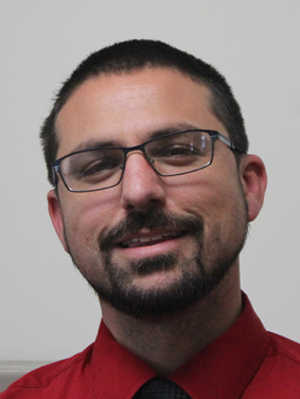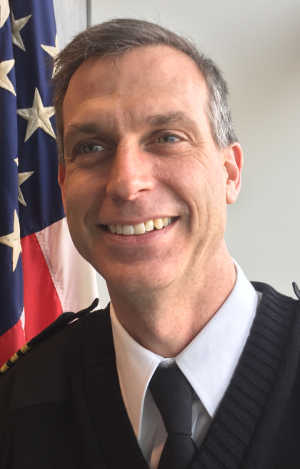- Pastor Chris DelCol
- Posted On
DelCol: Living in grace, revisited
When Christians departed their respective churches on Easter morning that day they did so saying, “Go in peace and serve the Lord, thanks be to God.”
The challenge we are left with then is to make everyday Easter and live in the grace that God has provided us through faith in Jesus Christ.
On Easter we reflected on the joyous celebration of the grace given to us through the empty tomb.
But in the church universal, the week after Easter morning we typically are faced with a doubting grace by the disciple who is forever labeled doubting Thomas.
Every Easter Sunday, pastors face the reality of a text the following Sunday that is specific to doubting Thomas and as the years go by it seems to become more and more difficult to talk about doubt, especially as it pertains to the one guy who was singled out as the “bad” guy who doubted Christ’s resurrection.
This, when every single one of them doubted. Remember that?
They were in the room the day Jesus came through the door. And they were there because they were all scared and they all doubted.
Not one of them would believe that Jesus was raised unless they saw Him, yet not one of them would be called doubting. Only Thomas would be labeled forever as the one who doubted.
And so here we are, saying to ourselves, what do we tell folks about doubt that hasn’t already been told? What more can be said that they haven’t already heard?
We’ve talked in past about needing proof for everything in order to not doubt. If you want me to believe in this grace thing, then I must be able to either see, touch, smell, hear or taste it. That’s it! It must be within the confines of my senses. So, we want proof.
If you want to see proof, look at creation, if you want to touch it, caress a newborn baby, if you want to smell proof, stand in a field of wildflowers in the springtime, if you want to hear it come to church on Sunday, you want to taste it come to the Lord’s table and embrace the reality of the means of grace in action – your sins forgiven. What else do we need to know?
It seems that we are all doubting Thomases at one time or another. We look around our community and we see doubt everywhere … I doubt we can ever recover our county, I doubt the homeless situation will ever be resolved, I doubt the people will ever start taking care of their properties, I doubt Lake County will ever be great again.
I disagree.
The scripture passages about doubting Thomas results in his renewal and I believe that we can make Lake County great again.
We are going to start with our little church in Lucerne and pray that will prompt others in the county to do the same. New paint, new roof, cleaning up the overgrown brush, cutting down old trees, planting flowers, maybe even getting the parking lot fixed up a bit. It starts with one effort and multiplies from there.
Stay posted and tell your neighbors as we plan a community “paint party” and get the church looking like it should, then carry that drive on so that the whole community is looking like it should.
The end result of doubt when it is proven erroneous is hope, enthusiasm, renewal and a desire to make change happen.
Join us as we move forward with eliminating doubt and getting things done.
We will talk about this further on Sunday so please join us at First Lutheran Church.
On Sunday, Bible study starts at 9:30 a.m., worship at 11 a.m. and then lunch after the service.
All are welcome so come as you are and get to know us better.
Chris DelCol is pastor of First Lutheran Church in Lucerne, Calif. The church is located at 3863 Country Club Drive, telephone 707-274-5572.









